Kurdish Student Dies After Chemical Attack On Tehran School
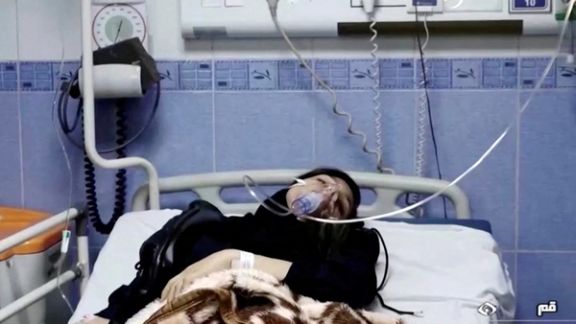
A Kurdish child from the city of Kamyaran, hospitalized after a chemical attack on a school in Tehran last month, has tragically died in hospital.

A Kurdish child from the city of Kamyaran, hospitalized after a chemical attack on a school in Tehran last month, has tragically died in hospital.
Hengaw Human Rights Organization reported Sunday that Karo Pashabadi, a 16-year-old boy living in Tehran, died three weeks after a chemical attack. The teenager was taken to hospital for treatment on March 15 after inhaling the poisonous gas used in the attack.
His body was laid to rest in Pashavah village of Kamyaran city in Kordestan Province on Saturday. At least one other child, 11-year-old Fatemeh Razaei, has died in the attacks which began on November 30 and have taken place in hundreds of schools nationwide.
Thousands of pupils have been affected, mostly girls, with hundreds more hospitalized with symptoms including respiratory distress, numbness in their limbs, heart palpitations, headaches, nausea, and vomiting.
Meanwhile, Hengaw also reported that the students of three high schools in the Kurdish city of Saqqez were poisoned and taken to medical centers on Sunday as the wave of poisonings blighting children across Iran appear to have returned after a short respite for Nowruz holidays.
Countless ordinary Iranians have been suspicious of the regime’s involvement, though the regime has denied responsibility and even staged arrests of suspects after protests against the poisonings added further fuel to the regime’s burning fire of unrest.
International reaction has demanded answers to the mystery poisonings including a spokesperson for the UN Human Rights Council in Geneva calling for a transparent investigation along with the White House, which demanded accountability for those responsible.
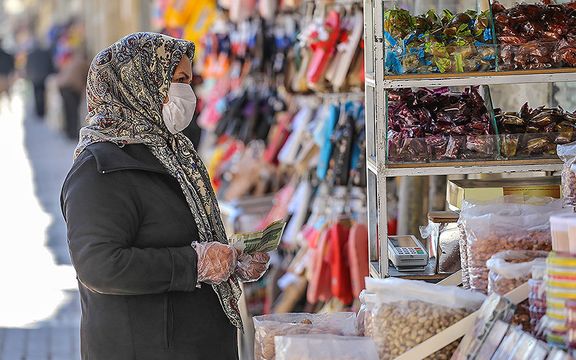
A conservative newspaper in Tehran has harshly criticized President Ebrahim Raisi for his failure to solve Iran’s economic problems and to control rising prices.
Jomhouri Eslami [Islamic Republic] newspaper reported April 8, that one of Iran's major pharmaceutical firms has increased the prices of its products by 67 percent. In another report, the daily said that during the past week state-owned companies raised vehicle prices by 40 to 70 percent.
Meanwhile, the daily charged that the Raisi administration's economic policy is in sharp contrast with the Supreme Leader’s Nowruz slogan of "Boosting production and controlling inflation". Raisi has said his government will do everything to achieve what the motto calls for.
An unprecedented drop in the value of Iran’s currency since September 2022 has led to runaway inflation and forced Iran’s ruler Ali Khamenei to officially call for a crusade against rising prices. The value of the rial has halved dropping from 250,000 to the US dollar to around 500,000.
The main reason for the crisis is the lack of any prospect for reaching an agreement with the West over Iran’s nuclear program, which can lift crippling sanctions imposed by the United States.
The newspaper warned Raisi not to resort to invalid justifications to whitewash the bitter realities Iranians are facing daily. Jomhouri Eslami also accused Raisi of burying his head in the sand and trying to sort out the problem by issuing orders while only during the first ten days of the New Year the price of essential commodities have undergone a 15 percent hike while travel costs have risen between 25 to 40 percent.
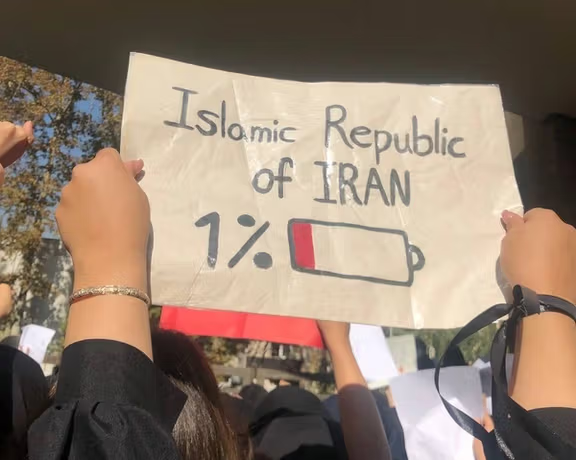
The daily asked Raisi: "Didn't you know before the Leader’s speech that inflation should be controlled? And how can you guarantee that you are able to control the prices from now on?" The newspaper suggested that Raisi should change his government's policies, start proper planning and hand over executive works to experienced and expert individuals.
Jomhouri Eslami had said in an earlier report on April 4 that the Raisi was not planning to discontinue his failed policies. The daily had said that Raisi should have taken a lesson from the people's protest in 2022 and suggested that he should not allow a hardliner minority to make decisions for his government.
Meanwhile, former reformist lawmaker Mahmoud Sadeghi on March 31 called on Raisi to resign and told him in a tweet that "The best solution for the country's problems is your resignation before holding a free and fair election." He further asked Raisi to be brave and resign.
Although US sanctions are a key factor in the economic crisis, politicians and pundits pile on Raisi, because they do not dare to say that Khamenei should allow a nuclear agreement with the West. Raisi’s haphazard management is another reason why critics find it easy to attack him.
In another development, conservative commentator Nasser Imani opined on April 4 that the government's weakness in decision-making reflected the President's mentality. He charged that Raisi's slow decision-making often ends in no decisions being made.
Speaking on the accusations of Raisi being under the influence of the ultraconservative Paydari Party, Imani said: "Being under the influence of Paydari Party is not the Raisi administration's main problem. The problem is that the government usually either finds it difficult to make decisions or it does not make any decision at all."
Imani argued, "Many government plans have remained undecided. For instance, the government said recently that it was about to create a Commerce Organization to operate under the President's Office, but the idea was abandoned after some time."
Imani further said that a major part of the problem is caused by the confusion in the government about how to tackle inflation. Raisi thinks inflation can be controlled by issuing orders, but the economy does not work that way.
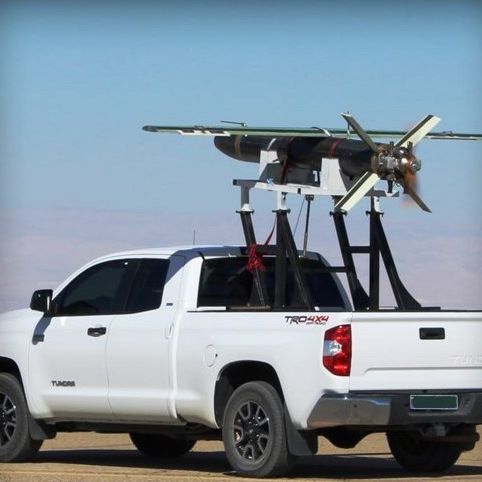
Iran’s Revolutionary Guard Corps has claimed it has developed its latest suicide drone as the regime steps up military drone production.
Known as the Meraj 532, it will be used by the IRGC ground force with a one-way range of 450km.
Spokesperson Ali Kouhestani said the easy-setup drone can fly up to a height of 12,000 feet for 3 hours after taking off from a vehicle, adding that with its 50 kg warhead, it has high accuracy.
He boasted that domestic production of drones is progressing at a good speed, and in the near future, other combat, training and suicide drones will be unveiled.
There is no independent confirmation of the suicide drone’s production.
Iran’s provision of drones to Russia in its war against Ukraine - a claim it denies - has led to a host of new sanctions on the republic from countries including the US and Australia, and the European Union.
Drones have also become a key weapon for Iran’s proxies in the region, not least, the Houthis in Yemen, which have used drone attacks not only on domestic targets but further afield against Saudi Arabia and the United Arab Emirates.
Though Iranian officials are known to make claims about military capabilities that cannot be independently verified, the US based Analysts at the Defense Intelligence Agency outlined how Iran had turned from being a regional drone player in the Middle East to becoming Moscow’s most significant military backer in the war.
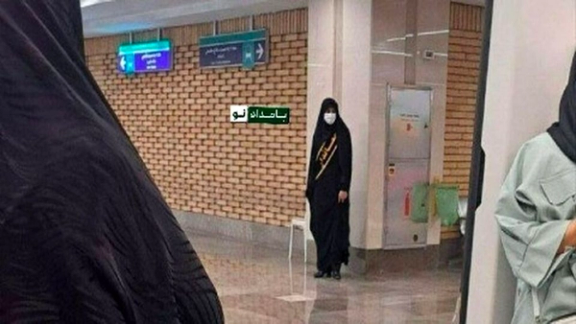
In a bid to deter the droves of women rebelling against mandatory hijab, the regime in turning to new forms of surveillance and public humiliation tactics.
Iran’s state TV published a video in which Tehran subway officers do not allow women without the mandatory hijab to enter.
After the statements by Supreme Leader Ali Khamenei about the mandatory hijab on Tuesday, a new round of the regime confrontation with those who do not want to wear hijab has begun.
Social media users have reported that some officers tasked with threatening those without hijab are stationed in metro wagons and the entries to the subway.
Meanwhile, police in Iran announced on Saturday that it is going to use "smart" technology in public places to identify and then punish women who do not wear hijab.
In a statement, police threatened that they would take action to identify those breaching the regime laws by using tools and smart cameras in public places and thoroughfares.
Islamic Republic's Police Chief Ahmad-Reza Radan confirmed in an interview with state TV: “From next Saturday, people who remove their veil will be identified by using smart equipment.”
Warnings will be issued before women are called to court.
Hundreds of women have been seen unveiled in public places since the death of Mahsa Amini in police custody for ‘improper’ wearing of her hijab. Others have been seen burning their veils in defiance, and cutting hair, in a rejection of the regime’s tough Islamic laws.
Although there is no accurate count but over the past four decades hundreds of thousands of these women have been arrested, fined, or jailed by authorities.
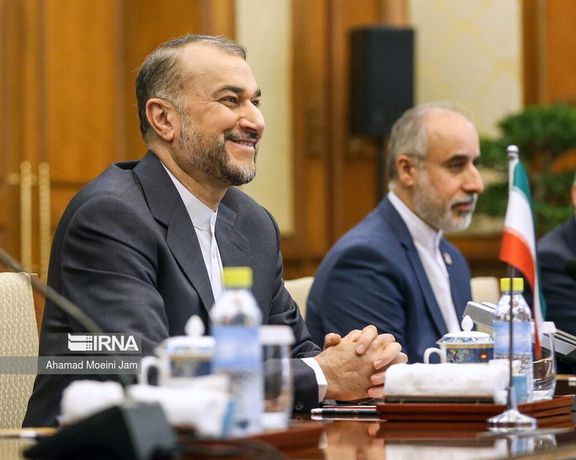
Crisis talks between Baku and Tehran have continued over the weekend in a bid to reduce rising tensions between the two nations.
Foreign Minister Hossein Amir-Abdollahian told his counterpart Jeyhun Bayramov of the “necessity of Islamic solidarity between Iran and Azerbaijan against Israel”, Iran’s nemesis.
The two had frank discussions about what the state news agency, IRNA, termed the “existing misunderstandings” as both sides urged de-escalation.
It has been a tense few months between the two states. Iran angrily reacted to Azerbaijan’s opening an embassy in Tel Aviv in March, in addition to relations souring following an armed attack on Azerbaijan’s embassy in Tehran in January.
Just last week, Azerbaijan expelled four Iranian diplomats over “provocative actions” which have yet to become clear, with Iran promising to do the same in return. Six Azerbaijanis were arrested hours earlier accused of a Shi’ite coup plot, believed to have been led by Tehran.
This weekend, the spokesperson of the Ministry of Foreign Affairs of Azerbaijan, Aykhan Hajizada, rebutted the pressure from Tehran, asserting that Islamic solidarity does not mean interfering in the internal affairs of other countries nor supporting the occupation of Muslim countries' lands.
In a bid to drive a wedge between Azerbaijan and Israel, the spokesman of Iran's Foreign Ministry, Nasser Kanaani, called on Azerbaijan to show Islamic solidarity against Israel and the recent events in Al-Aqsa Mosque.
Refusing to take the bait, Hajizada highlighted what it sees as Iranian hypocrisy: "The claim of Islamic solidarity by Iran comes as it did not protest against the occupation of the lands of the Republic of Azerbaijan by Armenia for 30 years."
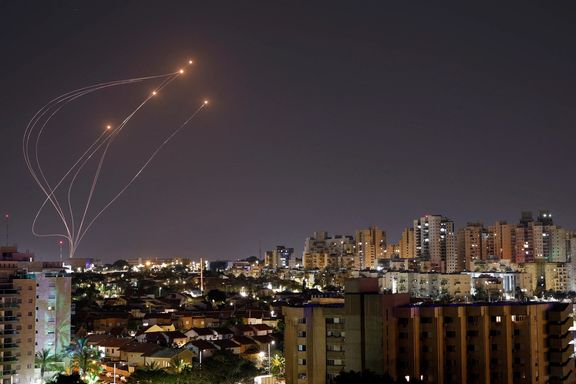
Chaos at the hands of Iran’s allies and proxies rippled across the region this weekend, with its effects felt from Israel to the US with Israel blaming Tehran.
Last Thursday saw the worst rocket attacks launched on Israel from Lebanon’s south in the most intense flare-up since 2006, at the same time as rocket attacks were being launched from Hamas-controlled Gaza in Israel’s south.
On Saturday night, that front extended to Syria, where rockets were fired into the Golan Heights. In both cases, Israel has strategically but moderately responded, attacking the likes of rocket launchers, radar and artillery positions in the wake of the attacks.
The turbulence continued after the announcement that the US Navy has deployed a guided-missile submarine capable of carrying up to 154 Tomahawk missiles to the Middle East in a show of force toward Iran following recent tensions. Just last month the US launched airstrikes against Iran-backed forces in Syria after a rocket attack killed a US contractor and wounded seven other Americans in that country’s northeast.
The latest deployment is believed to follow the uncovering of a plot by Iran’s Revolutionary Guards Aerospace Force which was preparing a drone attack against Israeli-owned civilian merchant vessels sailing in the Persian Gulf and the Arabian Sea, according to a report in The New York Times.
In a rare acknowledgment of the location and deployment of submarines, Commander Timothy Hawkins, a spokesman for the 5th Fleet based in Bahrain, said it can carry up to 154 Tomahawk land-attack cruise missiles and is deployed to US 5th Fleet “to help ensure regional maritime security and stability”.
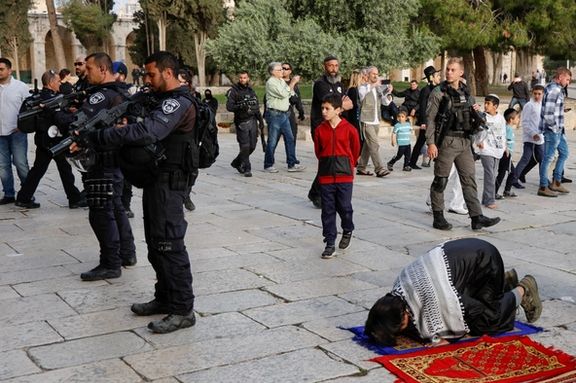
]The 5th Fleet patrols the crucial Strait of Hormuz, the narrow mouth of the Persian Gulf through which 20% of all oil transits. Its region includes the Bab el-Mandeb Strait off Yemen and the Red Sea stretching up to the Suez Canal, the Egyptian waterway linking the Mideast to the Mediterranean Sea.
The US, UK and Israel have accused Iran of targeting oil tankers and commercial ships in recent years, allegations denied by Tehran. The US Navy has also reported a series of tense encounters at sea with Iranian forces that it said were being recklessly aggressive.
And now, many are waiting to see what Israel’s bigger response will be to the attacks from Lebanon, which at minimum, have the tacit approval of Hezbollah which controls the area, but no doubt, has the blessing of Tehran.
So far, Israel has cautiously attributed blame to Palestinian factions in Lebanon, compounded by the fact Hamas’ political chief, Ismail Haniyeh, had met with Hezbollah leader Hassan Nasrallah on the eve of the rocket barrage.
The Israel Defense Forces’ spokesman alluded to the fact that investigations into Iranian involvement were underway in a press briefing Thursday but this weekend, Israel’s Minister of Defense Yoav Gallant spoke with his US counterpart, Secretary of Defense Lloyd Austin, and for the first time, claimed the attacks from both Gaza and Lebanon, were done "with the backing of Iran”.
While Hamas continues its campaign of chaos, the prospects for calm look slim. Carefully orchestrated riots inside the world’s third holiest Muslim site, Al Aqsa Mosque in Jerusalem, provoke often violent responses from Israel Police, appointed to safeguard freedom of worship.
Images of masked rioters in physical confrontations with police inside the mosque continue to stir the hatred and fuel Iran’s strategy for weakening Israel’s image in the public eye.
The Iranian regime’s media is boasting of its proxies destabilizing Israel and intimidating “the Zionists”.
On Sunday, Mohammad Baqer Qalibaf, speaker of Islamic Republic’s parliament, spoke in the public session of the legislative body and called Israeli retaliation “barbaric attacks”.
He left little to the imagination about the regime’s future plans. The multi-faceted war against Israel continues unabated. He warned: “The Zionist regime is in its weakest state in history and knows that a harsh and crushing punishment awaits them.”